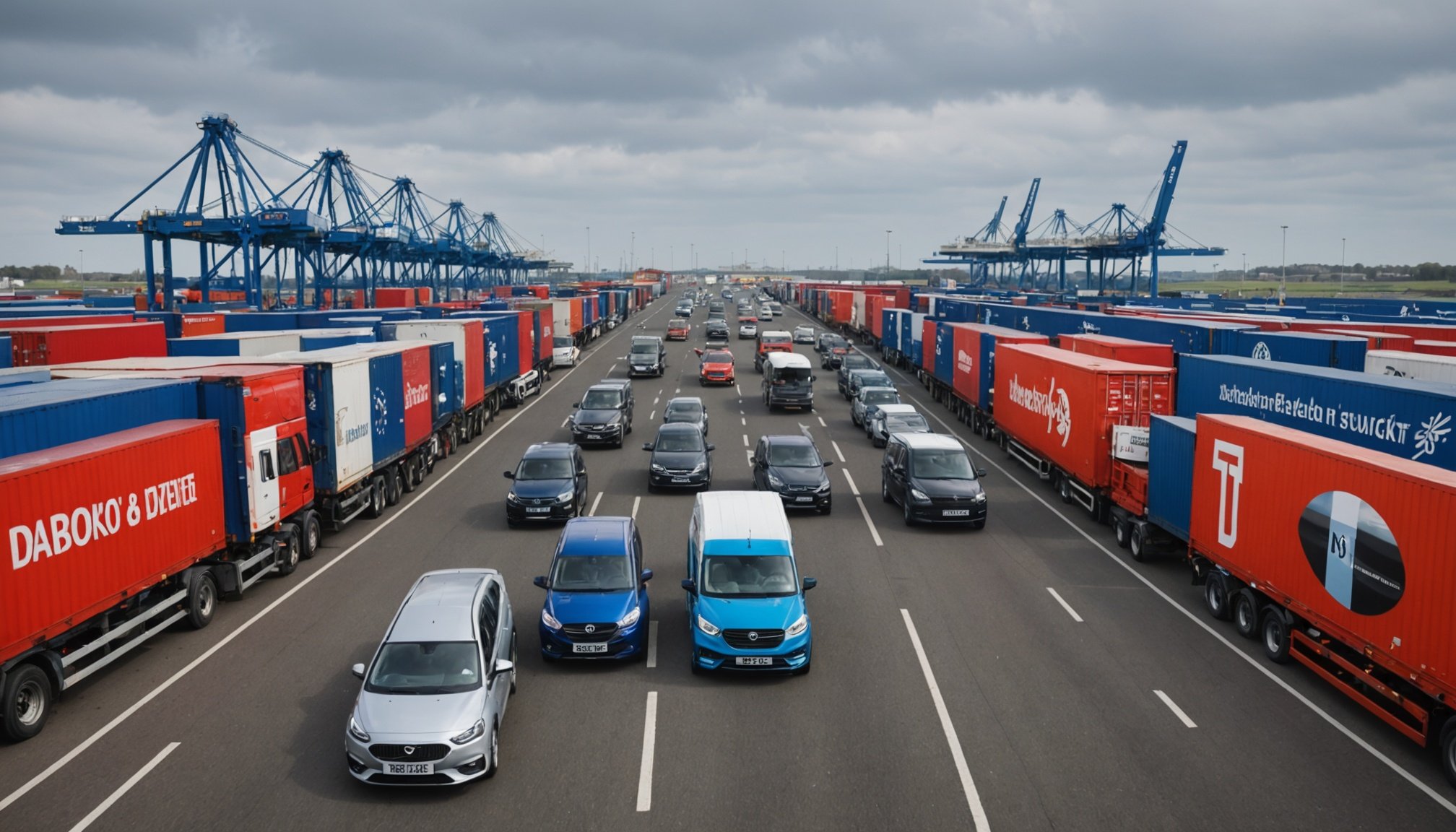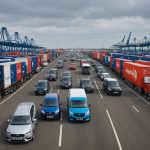As you navigate the post-Brexit landscape, understanding the implications of the UK’s ‘no deal’ Brexit on vehicle import tariffs is paramount. The split from the European Union has inevitably led to a seismic shift in the trade dynamics between the UK and other countries, particularly Europe. The automotive industry, known for its complex supply chains, is one sector significantly affected by this change. Let’s delve deeper into how the new trade situation impacts car manufacturers, consumers, and the overall motor market.
The Automotive Industry After Brexit
The automotive industry is an integral part of the UK’s economy, with vehicle manufacturing contributing significantly to the country’s GDP and employment. According to the Society of Motor Manufacturers and Traders (SMMT), the UK automotive industry is worth approximately £82 billion and employs around 823,000 people.
Topic to read : How to navigate the UK’s congestion charge zones with an electric vehicle?
In the run-up to Brexit, the SMMT warned of the potential damage a ‘no deal’ departure could inflict on this vital industry. Now, post-Brexit, the industry confronts a new reality of trading under World Trade Organisation (WTO) rules, which means import tariffs on cars and automotive parts.
The ‘no deal’ scenario translates into the fact that the UK failed to secure a free trade agreement with the EU. Thus, trade between the two entities is now governed by WTO rules. These rules stipulate that cars imported into the UK from the EU, and vice versa, are subject to a 10% tariff. In addition, automotive parts face a 4.5% tariff.
Have you seen this : What are the top-rated car insurance companies in the UK for 2024?
The Impact on Car Manufacturers
For car manufacturers, these tariffs add a significant financial burden. Particularly for those who rely heavily on cross-border supply chains. Many cars produced in the UK are made with components sourced from various European countries. The imposition of tariffs on these parts raises production costs, which manufacturers may have to pass on to consumers in the form of higher prices.
Manufacturers also face challenges in exporting their vehicles to the European market. The EU represents the largest export market for UK-made cars, with around 80% of vehicles produced in the UK destined for Europe. The 10% tariff on cars exported to the EU makes UK cars less competitive in price compared to vehicles produced within the EU.
The double impact of higher costs and reduced competitiveness threatens the financial viability of many manufacturers. This has led some companies to consider relocating their production facilities to countries within the EU to avoid these tariffs, potentially leading to job losses in the UK.
Effect on Consumers and Car Prices
The fallout from Brexit and the consequent tariffs also has implications for the consumer market. It is anticipated that the increased costs faced by car manufacturers will be passed on to consumers in the form of higher car prices.
The SMMT estimates that tariffs could add an average of £1,900 to the price of imported vehicles in the UK. For UK-made cars sold in Europe, the additional cost could be as much as £2,800 per vehicle. This puts consumers in a tough spot, especially those seeking to buy new cars. Those who can’t afford the price hike may turn to the used car market, leading to increased demand and potentially higher prices there as well.
Trade Opportunities in Other Markets
Despite the challenges, Brexit also presents trade opportunities. The UK government is actively pursuing trade deals with countries outside of the EU. These new agreements could potentially reduce or eliminate tariffs on UK-made vehicles, making them more competitive in these markets.
For example, the UK has already secured a trade deal with Japan, one of the world’s largest car markets. Under this agreement, UK-made cars will eventually be able to enter the Japanese market tariff-free.
Moreover, the government is in negotiations with countries like the US, Australia, and New Zealand. If successful, these deals could open up significant new markets for UK car manufacturers, potentially offsetting the loss of competitiveness in the European market.
Brexit has undeniably cast significant challenges on the UK’s automotive industry. However, with strategic planning and seizing new trade opportunities, the industry can adapt to this new era and continue its pivotal role in the UK’s economy.
New Trade Dynamics and the Future of the Auto Industry
Navigating through the new trade dynamics post-Brexit, the UK’s auto industry is exploring paths to ensure its strength and viability. At the core of these strategies are trade agreements with non-EU countries, which could potentially offset the heavy tariffs imposed by the WTO rules.
One such positive development is the trade deal with Japan, the third-biggest economy in the world and one of the largest car markets. The UK-Japan Comprehensive Economic Partnership Agreement, signed in October 2020, promises a future where UK-made cars can access the Japanese market tariff-free. This deal aids iconic British brands such as Land Rover and Bentley, opening new avenues for them and bolstering their international trade.
Negotiations are also underway with the US, Australia, and New Zealand to strike similar trade agreements. These deals could offer significant opportunities for the UK auto industry, offering them a chance to expand their market reach beyond Europe. At the same time, they also present challenges regarding meeting different regulatory standards and competing with well-established auto industries in these countries.
Moreover, the UK Government has hinted at implementing a ‘zero tariff zero quota’ trade policy. This would promote free trade by removing tariff rates on certain goods, including motor vehicles. If realized, this could stimulate car sales and reduce the cost burden on both consumers and manufacturers.
In addition, the UK’s exit from the EU also means that they are no longer bound by EU-wide rules on environmental standards and state aid, potentially giving them more flexibility in supporting their auto industry. However, they need to tread carefully to avoid disputes that could lead to additional tariffs under the WTO’s Most Favoured Nation (MFN) tariff rules.
In conclusion, the impact of the UK’s ‘no deal’ Brexit on the automotive industry is profound and multi-faceted. The imposition of WTO rules origin tariffs have undoubtedly put pressure on both manufacturers and consumers, leading to higher car prices and concerns over the competitiveness of UK-made cars.
However, this new era also brings opportunities. The potential of securing beneficial trade deals with non-EU countries could open new markets for UK car manufacturers. These agreements could mitigate the impact of the loss of free trade with the European Union and offer a lifeline to the industry.
Moreover, efforts are underway to stimulate the domestic market. The UK government’s proposed ‘zero tariff zero quota’ trade policy could stimulate demand for cars and soften the blow of the increased costs. The used car market could also provide a viable alternative for consumers looking for more affordable options.
The future of the UK’s automotive industry in the post-Brexit era hinges on the government’s ability to negotiate advantageous trade agreements and implement supportive domestic policies. In this evolving landscape, strategic planning and adaptability will be key for manufacturers to navigate the challenges and seize the opportunities that lie ahead. The road may seem bumpy, but with careful navigation, the UK’s auto industry can steer towards a promising future.











